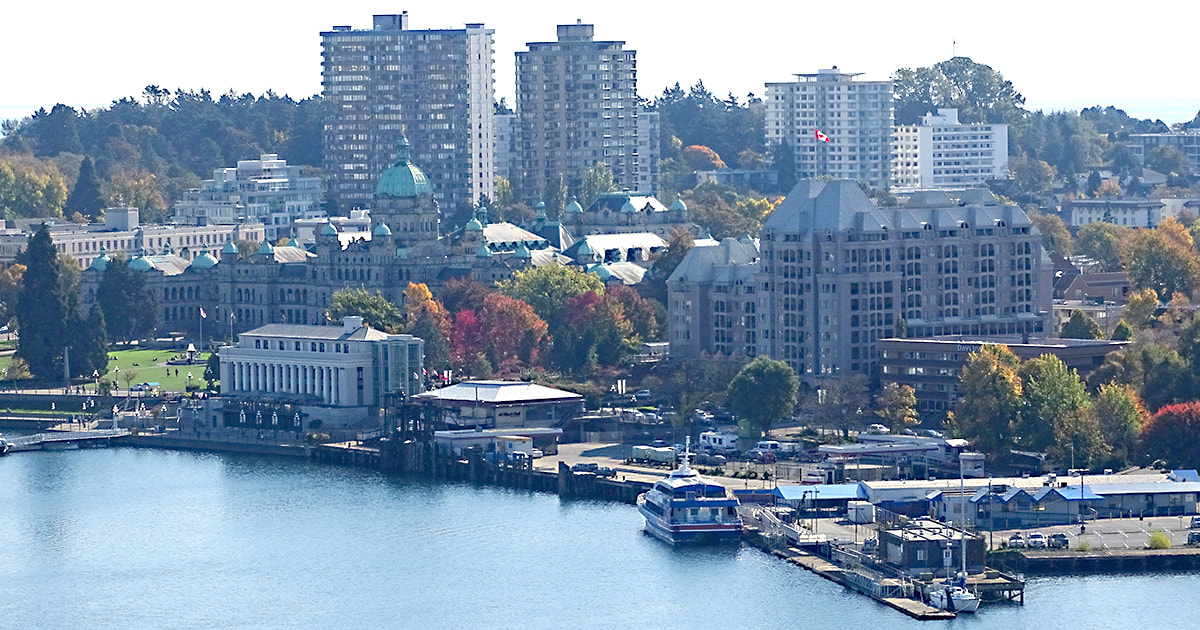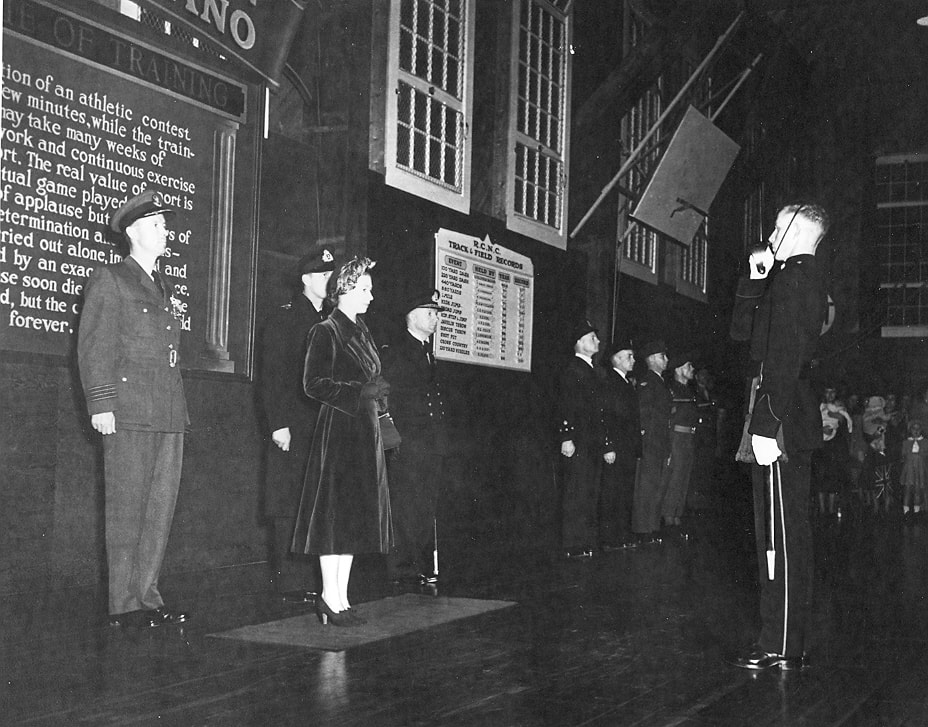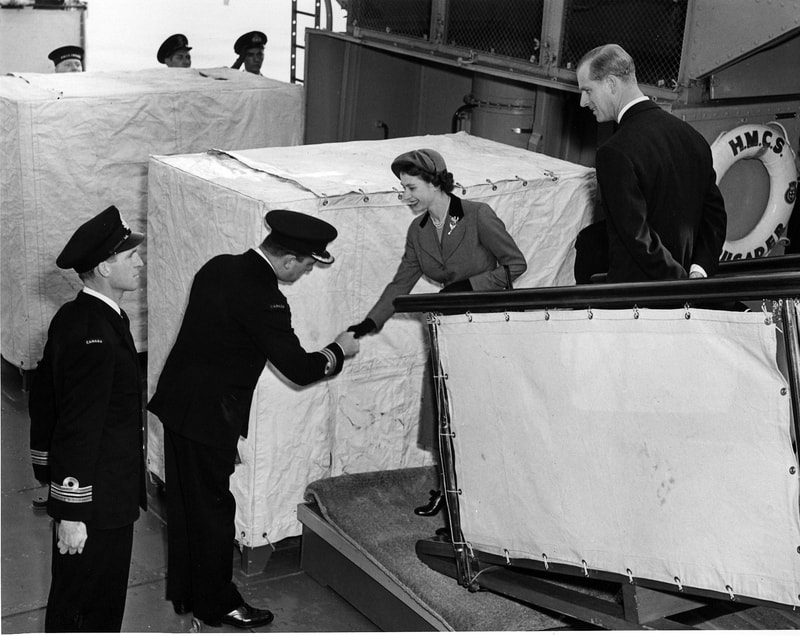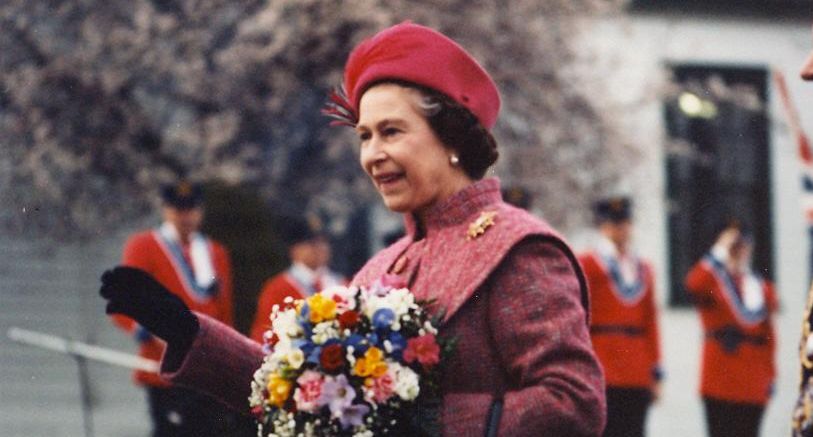|
On Feb. 14, The Chamber facilitated a Zoom session with Paul Robinson of the Vancouver Island Transportation Corridor Coalition and Larry Stevenson, CEO of the Island Corridor Foundation.
Members of chambers from across Vancouver Island attended to listen and ask questions about the corridor's future. It's currently uncertain as a March 14 court-imposed deadline looms. In 2021, the BC Court of Appeals gave the federal and provincial governments 18 months to renew their commitment to improve the infrastructure required for rail. The deadline was triggered by a lawsuit launched by the Snaw-naw-as First Nation. They want to reclaim the land that runs through their territory, arguing the right-of-way granted by Canada in 1912 is no longer being used as intended. Island communities enjoyed rail service for more than 100 years, until it was suspended indefinitely in 2011. Since then, a vocal group of train enthusiasts, environmentalists and transportation planners have been calling for a modern passenger train that will reduce the number of cars and transport trucks on Island highways, cut greenhouse gas emissions and offer an alternative for commuters. Island communities have also lost inter city bus service creating yet another barrier to safe travel for people who can't access a vehicle. The Chamber has asked the Federal Government to subsidize a return of that service. A health emergency that affects all segments of society resulted in 2,300 deaths in BC last year. As a response, the province formally announced that people will no longer face criminal charges for possessing a cumulative total of as much as 2.5 grams of opioids, cocaine, methamphetamine and MDMA for personal use. The substances are still illegal but police are no longer arresting drug users or seizing their supply. Instead, they will provide information on available social supports, health care and treatment options.
“By supporting British Columbia in this exemption to the Controlled Drugs and Substances Act, (the federal) government is providing the Province with the ability to help divert people away from the criminal justice system and toward the health and social services they need," federal Minister of Mental Health and Addictions and Associate Minister of Health Carolyn Bennett said. Addiction and toxic drug deaths cause immeasurable damage to families and communities, and add huge costs to society. However, The Chamber is calling on the federal and provincial governments to do more to ensure treatment options are readily available. "We know that programs like Our Place Society's New Roads has a proven track record of helping people recover from addiction," Chamber CEO Bruce Williams said. "The therapeutic-community based model has some of the best outcomes of any treatment in the world. However, it needs support from government to ensure it can remain operational and increase intake. We have an opportunity to do more, and eventually recreate the success of New Roads at facilities across the province." As expected, the Bank of Canada bumped up its policy interest rate by a quarter point while signalling no further moves are planned until the impact on the economy can be more fully assessed.
"Inflation is projected to come down significantly this year," a media release from the Bank stated. "Lower energy prices, improvements in global supply conditions, and the effects of higher interest rates on demand are expected to bring CPI inflation down to around 3% in the middle of this year and back to the 2% target in 2024." The Bank of Canada has hiked its rate eight times in less than a year. The moves have slowed business investment and dampened consumer confidence, adversely affecting most business sectors. "We've been checking in with our members during this time and I know it's been difficult for many people facing higher costs," Chamber CEO Bruce Williams said. "We're focused on supporting members as we can, helping them build resiliency in their organizations while calling for smart investments from government so that our regional economy can come back stronger than ever." Cruise ship season is tentatively set to begin April 11 with the arrival of 2,600 passengers aboard the Sapphire Princess. The year is shaping up well as the industry appears to have fully bounced back after the pandemic.
The Greater Victoria Harbour Authority anticipates 330 ship calls at the Victoria Cruise Terminal between April and October, with about 850,000 cruise passengers getting a taste of our destination. According to a survey, 53% of people who stopped in Victoria aboard a cruise ship said they would be back for another visit within five years. “GVHA is focused on sustainable growth that benefits the region. We understand that, along with many economic benefits to the community, cruise also presents some challenges. We want to make sure we address those challenges,” GVHA CEO Ian Robertson said in a news release. “Shore power is top priority, and we continue to work with the federal government to get that funding piece in place. It’s a modest investment to realize huge potential and impact, and time to finalize the funding and move this ahead.” Join The Chamber for a discussion with the Vancouver Island Transportation Corridor Coalition and Island Corridor Foundation on the work done towards identifying the need for, and public interest in, reinstating Island Rail Service.
"The provincial government is quickly approaching a critical decision point and must provide an answer on the future of the Island corridor by March 14," said coalition representative Paul Robinson, noting that reinstating Island rail service could help the Island's tourism economy and get more vehicles off the roads. "VITCC believes that rail is, by far, the most equitable mode of ground-based transportation as there are no age, health, ability, income impediments, and no requirements for vehicle operator ownership, licensing, and associated expenses." The Chamber will be leading the discussion on rail as part of our role in The Island Chamber Advocacy Alliance, connecting business across the Island. This free, virtual event is open to members of Chambers across Vancouver Island. Island Corridor Foundation: Member since 2020 Inflation makes the cost of doing business more expensive and inhibits investment, which is why the recent data from Statistics Canada is welcome news.
The Consumer Price Index rose 6.3% year over year in December, down from a 6.8% increase in November. Excluding food and energy, prices rose 5.3% on a yearly basis in December, compared to 5.4% in November. Canadian Chamber Economist Mahmoud Khairy said the drop might not be enough to keep the Bank of Canada from one more increase to interest rates later this month. Khairy expects rates to rise by a quarter point, to 4.5%, and end the tightening cycle which began last March. Meanwhile, the Bank of Canada released its latest Business Outlook Survey on Monday. It found that the rise in interest has dampened sales forecasts as customers have less spending money available after paying for necessities. The Bank also released its survey of Consumer Expectations on Monday, showing that many people still fear a recession despite stronger than expected job numbers. Finding and keeping workers has been an ongoing challenge facing every sector and almost all employers in Greater Victoria and across the country. We need a larger workforce to enable organizations to reach their economic potential. One of the key solutions is to welcome more new Canadians to our region. Last year, Canada set a record for immigration as 431,645 people became new permanent residents — the most since 1913. The target for 2023 is 465,000.
Canada's labour force growth is almost 100% dependent on immigration. The Chamber has been working with community partners and our national network to advocate for immigration that prioritizes workers with skills needed by employers. We're also working to ensure Greater Victoria receives its fair share of immigration, which typically gravitates to Canada's larger cities. The federal ban on foreign purchases of Canadian homes is now in effect. The intent of the regulation is to free up housing to meet the intense demand that has seen real estate prices skyrocket over the past decade. However, just how effective the rule will be remains to be seen as foreign buyers account for less than 0.5% of real estate sales in BC.
The prohibition isn't permanent. It's set to run for two years and does not apply to non-Canadians who are looking to rent. The Act defines residential property as buildings with fewer than four homes, as well as parts of buildings like a semi-detached house or a condominium unit. The law does not prohibit the purchase of larger buildings with multiple units. Anyone convicted of violating the Act faces a $10,000 fine, and non-Canadians could face a court order to sell the house. The federal government released Canada's Indo-Pacific Strategy this week, providing a guideline for future engagement with this massive economic region. The Canadian Chamber welcomed the news.
“In addition to increasing our presence in the region, much of the important work that needs to be done is here at home," Canadian Chamber of Commerce’s President and CEO Perrin Beatty said. "Any successful strategy must give an enhanced priority to building the trade-enhancing infrastructure that is needed to significantly increase our exports. Additionally, the rapidly-growing communities of Canadians who trace their roots to the region provide a much-underutilized source of people who speak the languages, understand the cultures and have networks of family and friends in the region and who could help to strengthen our trade and investment ties." The Indo-Pacific accounts for 65% of the world's population and is Canada’s second-largest regional export market, after the United States, with annual two-way trade valued at $226 billion. Almost 20% of Canadians have family ties in the Indo-Pacific, which also provides 60% of Canada’s international students. A movement that initially took hold in the City of Victoria is set to become a Canada-wide initiative as of Dec. 20. The federal Single-Use Plastics Prohibition Regulations aims to stop the manufacture, import and sale of bags, cutlery and other items made with problematic plastics.
The Chamber worked closely with Victoria and other local governments. Our goal was to make sure the initial regulations incorporated innovations that businesses were already using to address consumer concerns. The public has, for many years, supported businesses that provided alternatives to plastic waste. Having the same rules across the country will help businesses work with the requirements efficiently and effectively. A pair of announcements over the last week offered good news for efforts to find and keep workers in Greater Victoria. On Nov. 16, the federal government listed changes to the types of jobs considered high demand. Sectors such as health care, construction and transportation will benefit from having 16 new occupations included under the Express Entry system.
Meanwhile, BC announced today a plan to encourage more skilled immigrants to settle outside of the Lower Mainland. That should help regions such as Greater Victoria. The incentives give candidates in the Provincial Nomination Program a higher priority if they have worked outside of Metro Vancouver. The same priority will be given to recent grads of post-secondary schools outside of the Lower Mainland. With winter looking likely to bring a chilling to Canada's economy as well as the weather, The Chamber is urging government to promote investment in business growth that can light the way through winter.
Working with our national network, The Chamber is calling on federal Finance Minister Chrystia Freeland to work together with business. "Attempting to borrow our way to prosperity would only generate more debt and inflation," Canadian Chamber CEO Perrin Beatty said, noting a better way is to use available "no-cost and low-cost tools" that will increase government revenue and grow the economy. "These measures include reforming regulation, increasing labour force participation and eliminating longstanding barriers to interprovincial trade, while avoiding new taxes and ending rhetoric that portrays Canadian businesses as the problem instead of as partners in growing a stronger economy." Minister Freeland is scheduled to provide a fall economic update on Thursday. The legal sale of cannabis in BC continues to grow, potentially reducing the size of the black market. Statistics Canada's figures show that British Columbians spent $57.3 million on legal cannabis in July — the highest month yet recorded.
Since cannabis was legalized four years ago, statistics show one in five people report using the product over the past year. The Chamber supports fair rules for all businesses, and we believe that the community benefits from an industry operating with legal regulations that protect the public and provide certainty to businesses. There is tremendous power in a coalition of organizations from every corner of the country that have an active role in connecting businesses with all levels of government. This was in full display earlier this month as the national chamber network gathered in Ottawa for the Canadian Chamber of Commerce's AGM.
"It really was remarkable to be among the voices of business communities from across Canada and hear how many of our concerns and challenges are shared," Chamber CEO Bruce Williams said of being a delegate at the meeting. "We were able to meet directly with a number of federal ministers and senior staff, who were quite keen to better understand what policies are needed to help businesses build resiliency." Williams also introduced a policy resolution at the AGM, highlighting the need for federal support of child care to enable parents to stay in the workforce and continue their careers. The resolution was adopted, along with a number of others supported by The Chamber that further our Advocacy Priorities. The Chamber applauds news that the federal government will allow international students to work more than their current limit of 20 hours.
Having access to a larger workforce will help us better achieve our economic potential. Allowing students to earn more money without interfering in their studies will also improve the economic situation of new graduates. Canada also relies on immigration to meet employment forecasts, and having people who have studied and worked here will only help with the adjustment to Canadian society. The pilot project begins Nov. 15 and is scheduled to run until the end of 2023, though there are already calls to make the extended hours permanent. Last week's news that the provincial government is making child care more affordable is a step in the right direction. The Chamber has long advocated for accessible and affordable child care as a vital investment in our economy.
On Friday, the province announced that parents can expect to save as much as $550 in child care costs every month. The new funding will go directly to licensed child care centres so parents don't have to apply. The savings will take effect in December, and help families with children who are kindergarten-aged or younger. The savings build on earlier cuts to costs and are funded by the federal governments $3.2 billion agreement with BC. Examples of how the program will help families and allow more parents to continue their careers include:
The latest numbers show inflation has cooled faster than expected. The August Consumer Price Index was up 7% over last year — less than the 7.3% that had been forecast. Core inflation was also lower than expected.
The drop in inflation comes after the Bank of Canada raised interest rates. However, it will take more than numbers to stem inflation and get Canada's economy back on track, said the bank's Deputy Governor Paul Beaudry. "Some have suggested that policy-makers need to engineer a substantial slowdown — or even a recession — to get inflation back under control," Beaudry said in a speech on Tuesday. "But the best strategy for responding to high inflation needs to consider how people form their inflation expectations. If people understand and believe that the central bank will eventually bring inflation back to target, their expectations will remain 'anchored.'” Businesses and employers can help by moderating increases to prices or wages, with the understanding that inflationary pressures are temporary. Not an easy task for organizations facing increasing costs and still recovering from pandemic challenges. The Chamber applauds the provincial government's initiative to seek public input on plans to rejuvenate Belleville Terminal.
The facility in the Inner Harbour has served as a gateway for international visitors arriving by water since 1924. As a champion of our region's tourism industry, The Chamber has consistently advocated for the terminal and the need to modernize it with the times. "We've been calling for renovations for decades, and it's taken time to get all levels of government onboard," Chamber CEO Bruce Williams said. "Now that we've done that, there's no time to lose. The requirements to be a border crossing have changed and there's a real risk we could lose our port of entry." More than 680,000 passengers travelled through Belleville Terminal in 2019 and spent about $174 million in Greater Victoria, says the province's project plan. Belleville Terminal generates 220,000 overnight visitors and sells over 16,000 vacation packages annually to their passengers, all of which are provided by local businesses in Victoria. The province is developing a business case for the project. It's expected to cost up to $290 million and be completed by fall 2027. A temporary terminal will be built until a new facility is ready. The death of Queen Elizabeth II on Sept. 8 has led to a tremendous response from people around the world.
"On behalf of our Chamber members, Board of Directors and Staff we offer sincere condolences to all who are feeling grief and sadness at the passing of Queen Elizabeth," Chamber CEO Bruce Williams said in a statement last week. "These historic events bring us together in conversations about the impact the Royal Family and Her Majesty have had on our world and our lives. Her years of service are an inspiration to all who offer their lives to service of others." Yesterday, the federal government announced it would mark the Queen's death with a national day of mourning on Sept. 19. BC Premier John Horgan followed suit a few hours later noting that the province has "advised provincial public-sector employers to honour this day in recognition of the obligations around federal holidays in the vast majority of provincial collective agreements." The unplanned closure of schools and public offices will have an impact on many businesses. Staffing could be challenging as parents scramble to arrange child care. People who had appointments booked will also face disruption as they need to reschedule for a later date. In Greater Victoria, the province is planning to host a procession on Sept. 19, starting at 10:15 am, and travelling from the BC Legislature to Christ Church Cathedral. The pandemic showed that government support has an important role in helping business. As the economy recovers, the lessons learned should help the public and private sectors find more efficient ways to work together.
To that end, Innovation Canada is hosting an event at 10 am on Sept. 14 for entrepreneurs interested in government investment. explain what programs are available to help businesses scale their growth The free session includes a chance to ask questions. Register here. Housing supply is critical in order to address the highest expense directly affecting the cost of living in our region and across Canada. With demand growing due to increases to our population, the challenge of our time is to ensure homes are accessible and affordable for everyone needed to help our community prosper.
"It's fundamental economics. A limited supply results in increased demand, which tends to increase costs," Chamber CEO Bruce Williams said. "We need a concerted effort from all levels of government to support builders who need an adequate workforce as well as access to materials and land needed to build more homes." Some progress is being made. Canada Mortgage and Housing Corp. recently reported that urban housing starts increased in July compared to June. “Historically elevated levels of housing starts activity continue in Canada, which have been well above 200,000 units since 2020,” said Aled Ab Iorwerth, CMHC's Deputy Chief Economist. Concerns over inflation and the resulting increase in interest rates sparked by the Bank of Canada have worked to cool down housing sales in our region. The Victoria Real Estate Board's latest statistical analysis shows 35% fewer homes were sold in June compared to the same month last year. There are more listings on the market allowing it to settle into a more typical pace than the frenzied conditions experienced during the pandemic.
However, the benchmark value for homes continued to increase to $1,464,400 in June from $1,446,400 in May. "It may seem counterintuitive to continue to talk about the need for supply at a time when inventory is rising," VREB President Dinnie-Smyth said in a news release. "We must keep the conversation alive, and we urge all levels of government to continue to aggressively address the housing supply situation. We need more supply of all types of housing." A lack of housing supply is a major factor in the challenge many employers face finding and keeping workers. “We are always advocating for more affordable housing and housing supply, as well as security and sustainability in supply chains to get the needed materials in place to create housing,” Chamber CEO Bruce Williams told the Times Colonist. British Columbia will be among the first provinces to engage in consultations with the federal government on planning for a new economy based on renewable energy.
The Regional Energy and Resource Tables will include representatives from municipalities, First Nations, universities, industry and business groups. The discussion will look at opportunities that come with investing in a net-zero economy. “It's about actually doing the manufacturing of batteries and electric vehicles and a range of other products that utilize critical minerals in this country,” Minister of Natural Resources Jonathon Wilkinson told Glacier Media. “I see this as actually a generational opportunity for Canada.” An initiative that started in the City of Victoria, was supported by business and took root across Greater Victoria is moving to the national stage. As of the end of this year, the federal government is banning the production or importation of single-use plastic bags, straws, stir sticks containers and other items that clog up landfills and contaminate natural ecosystems.
The Chamber worked closely with local governments on the initial regulations to ensure government followed innovations already being introduced by business. This helped the implementation unfold smoothly as the rules were a response to public demand as identified by businesses, ensuring success. The best way to address the seriousness of climate change is by supporting innovations led by business. As Chair of the Council of the Federation, BC Premier John Horgan will host his counterparts from across the country in Victoria on July 11-12.
Premiers from every province and territory in Canada are expected to debate in style at the Fairmont Empress. The premiers will discuss national issues, including a call for the federal government to increase health care funding. “Canada’s public health-care system began as a 50/50 partnership, but the federal government’s contribution has shrunk to just 22%," Horgan said in a news release. "This is not sustainable for our health-care system and we cannot afford to wait. Today, I renew my call to the federal government to provide their fair share and cover 35% of the costs." |
Categories
All
|
Copyright © 2021 Greater Victoria Chamber of Commerce. All rights reserved.
#100 – 852 Fort St., Victoria, BC V8W 1H8, Canada | Phone: (250) 383-7191
[email protected] | Site Map
#100 – 852 Fort St., Victoria, BC V8W 1H8, Canada | Phone: (250) 383-7191
[email protected] | Site Map
Notice a typo or broken link? Please let us know so we can fix it ASAP. Email [email protected]







